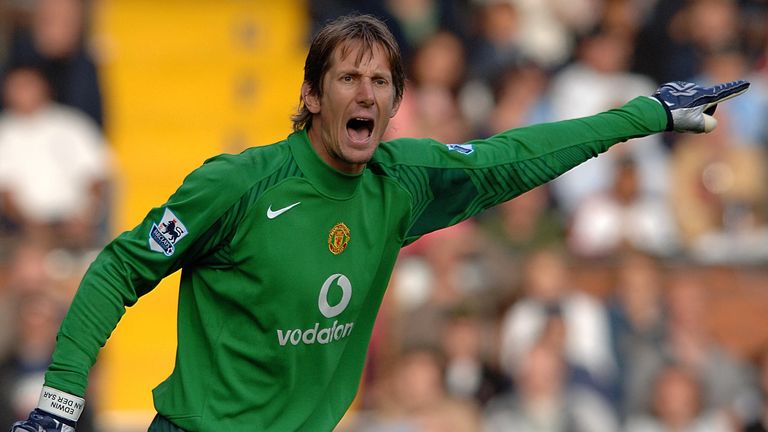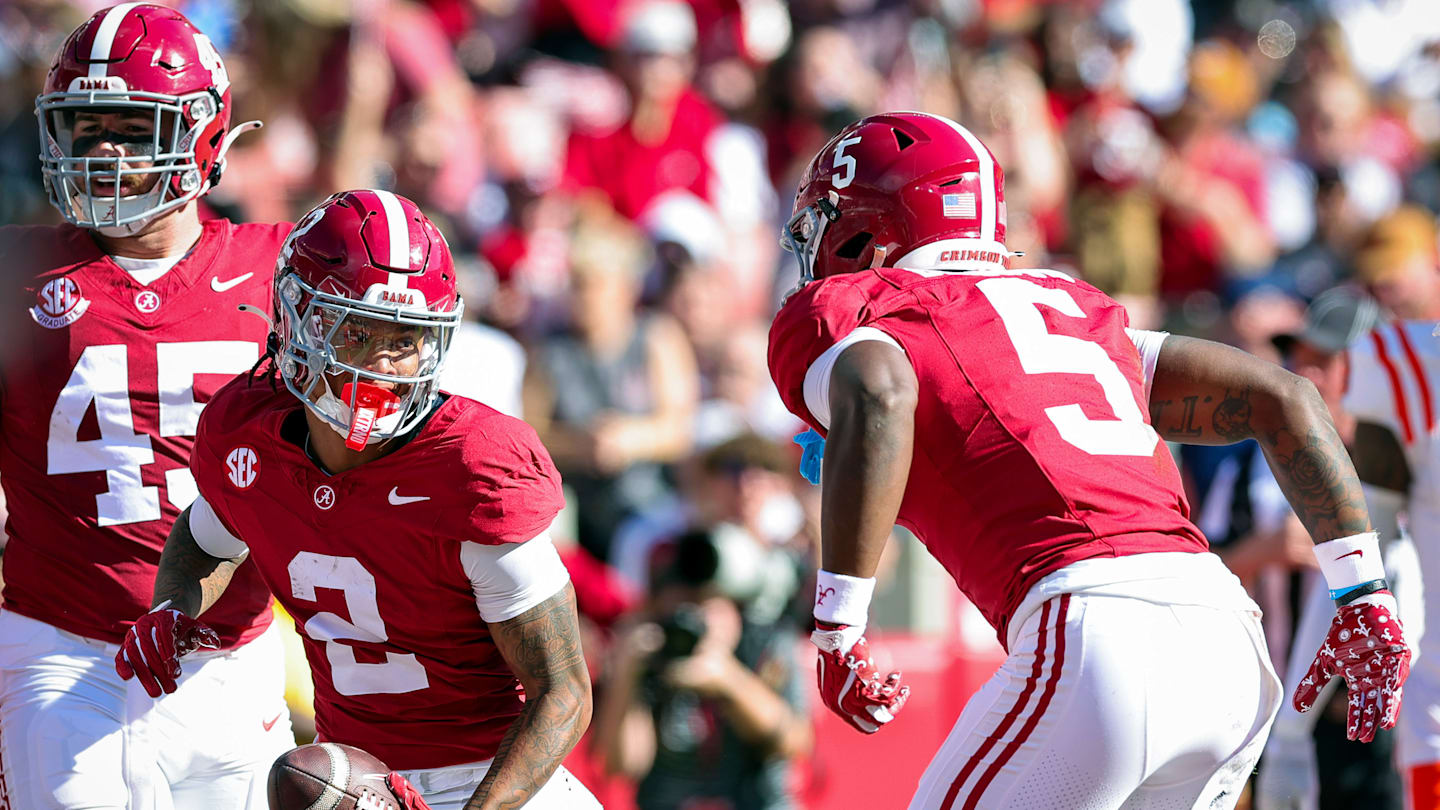Edwin van der Sar on his health journey, future in football, Manchester United and Ruben Amorim

Edwin van der Sar’s life was turned upside down in July last year when he suffered a brain haemorrhage while on holiday in Croatia.
In an exclusive interview, former Manchester United and Netherlands goalkeeper Van der Sar sat down with Sky Sports News’ senior reporter Tim Thornton in Amsterdam to discuss the moment his life changed, his journey back to health, his future and the appointment of Ruben Amorim at Old Trafford.
Edwin, can we take you back to July last year? You were on holiday in Croatia. Can you explain to us what happened?
I woke up and it was the last day of the holiday, and we were planning to leave that day. I felt like a certain thing in my neck, the back of my shoulder blades.
I threw up in the toilet and I came back in the room where the curtains were open and I couldn’t have the light in my eyes. I went to lay in my bed, and I said ‘I need to call a doctor, I don’t feel well’. That turned out to be a brain haemorrhage.
It was a bit of a shock to be fair because you all think you’re healthy, you’re strong and, of course you’re not as fit anymore as during your career, but you never expect that something like that would happen to a fit 52-year-old man.
Your wife, Annemarie, also suffered a brain haemorrhage. Was she very quick to recognise the signs?
I think we’re sort of experienced in that part. I was there when it happened with her, and she was in the room when it happened with me. We have a foundation also, we’re looking after people with a brain haemorrhage, and young children.
So, she recognised the signs, got in touch with the general manager of the hotel. They were fantastic in Croatia, got the doctor, got the ambulance and from there on it was to the hospital for check-ups and that kind of stuff. I just lay down and was resting and let other people do what they needed to do or supposed to do and that worked quite well.
Were you aware of the outpouring of support from the world of football?
No, because I didn’t get my phone from my wife for about two weeks. The first week, I was in hospital in Croatia and then we got transported to Holland, to The Hague, another four or five days in the ICU. From there on, I went to a normal room and that was the time that I got my phone back.
So, in that part, you see how many messages you have, but I think the first thing that you need to do is get better. There’s a lot of attention, a lot of people are well-wishers, but you need to look after yourself, your family and your children and just recover.
That’s what I did in the first period. Of course, all the well-wishers, the flowers, the Instagram posts, the support, that’s nice to have and great to see.
Is it quite a long process from being in hospital to getting back to normal?
It all depends. I think for myself, it was a lighter version, but still your whole body gets a shake-up. I had to work on my conditional stuff, balance, all that kind of thing. But that was quite okay, say after two weeks, to talk, to move, that kind of stuff.
Are you fully recovered now?
I think so, yes. Probably some things changed in my thinking, but that’s only, for example, my wife and my children, they notice that. But let’s say a conversation like this is not a problem.
Has it changed your perspective on life?
Probably. I resigned at Ajax at the end of May, around five weeks before my episodes. I thought I’d take a year off.
I go travelling, rest, recover and then take on a new challenge. When you’re dealing with health issues, when you’re working, you think ‘well, my work is the most important thing. I need to make the interviews, we need to make sure we sign the best players, we have to lead the club and everything’.
That’s not really important if your health is in danger or comes in place. So, in that part, I think I’m enjoying life, taking things as it comes. I’m not really looking for a new challenge or something, because what I did as a football player, I played until I was 40 or 41.
At 52, I was director at Ajax. I think we had an incredible success bringing the club to a European pedigree again. The quality of the players that we developed, the players that we scouted, the ambition that we showed to the club to bring Ajax really to a level again.
That hadn’t gone unnoticed and that was amazing. To really step into a new adventure, I’m not really sure if that’s going to be the next thing.
But we recently saw you back on the pitch in a Legends game. How was that experience, getting the boots back on?
Sometimes I tell my friends what I really missed, maybe just on a small pitch and kick some balls for 30 metres and just play football. To do that again with players that you respected, that you played with, that you played against.
For example, I had a great conversation with Didier Drogba. When we were playing, he was a pain. He always scored. He was right on top of Rio [Ferdinand] and Vida [Nemanja Vidic]. He’s tough, but you talk to him for half an hour or 40 minutes about his ambition to be president of the Football Federation of his country. He’s a great, gentle guy.
When you’re playing, the only thing you have to do is work for yourself, work for your club, score for your club, perform at the highest level. The opponent does the same thing, otherwise it’s not top level. On that part, it’s great to have more time now to have those conversations in a very respectful manner, compared to whatever head-to-head when you’re a player.
Do you feel as though you’re finished with football now?
No, I don’t think so. Of course, I enjoyed the game. I haven’t been to many games, but I think what I achieved, what I learned in 11 years as a marketing director and as a chief executive, I’m sure there’s going to be a challenge somewhere. It’s going to be a possibility.
Is it the one for me? I’m not sure yet. I have not decided at the moment.
I’m doing stuff that I like. I like going on holiday, walk the dog, get a newspaper, get a sandwich. Small things I enjoy at the moment, but there’s maybe in a year’s time, half a year’s time, that you want to have a challenge again.
The attraction of the football world, the smell of success or working with a team to achieve something, I think that will be a pull at a certain point in the coming years.
You touched on your role at Ajax as chief executive, so what are your thoughts on the restructure at Manchester United. How important is it to have that leadership from the very top?
It’s of utmost importance that all things are connected. I experienced at Ajax also when one radar, one little thing is not working, it can have an effect down the line.
I think that happened also at United. I think the structure has been quite clear, with the Glazers as the ownership. I think the football structure and the CEO position has been changed also a few times.
I think what I feel, what I hear, what I read, I think they’ve all been signed in a certain way that they can back each other up. Unfortunately for Erik ten Hag, the results didn’t work. I think now, let’s say, the people who should appoint a manager have appointed their manager, so that would probably work better than the situation a couple of months ago.
Your first impressions of Ruben Amorim, does he have the character, the personality?
A lot of things are required at Manchester United. I think what Erik achieved with Ajax, the success in Europe, the way that we played, that he could get the tactics right, I was expecting that also at Manchester United.
With Ruben, I met him four or five years ago. I think we played Sporting Lisbon, and he was the manager at that time. I was watching the U19 Youth League game, and he was there also, so I had a nice conversation with him. I think he’s an open man, I think his humour is open, his English is good.
I’ve not followed Sporting all the time and I’m sure the homework has been done by the scouts, by the technical people of the club, to find a successor and hopefully bring success to the club.
And when you are trying to build success, is the biggest commodity time? Will he need time?
Time is always a nice thing to have, but at a certain point, you have to have results. I’m sure those results will come.
I think the club has tremendous support through the whole world. They’ve signed enough players and at a certain point, you have to also stop chopping left and right.
Now they’re going to play a new system. Of course, a manager probably wants to have one or two players coming in January. I think the most important thing is to have the line with the technical director, the football director, that they can know which situation will be needed to replace, to change, to add.
I’m sure that discussion will be there, but in the meantime, a manager needs to perform and needs to win games because the position where they are now is not great.
Related
Alabama football’s 2025 WR room is giving “Ryde Outs” vibes
Alabama football's WR room stagnated in the final years of the Nick Saban era in Tuscaloosa. The Crimson Tide went from a dominant run of recruiting and develop
Does Michigan Football have the experience to make the College…
The Michigan Wolverines made it to the College Football Playoff for the first time in 2021 after beating Ohio State and winning the Big Ten Championship. Sin
Big 12 opener, historic Classic highlights HBCU football schedule
Courtesy of UAPB Athletics PINE BLUFF, AR.– The University of Arkansas at Pine Bluff Golden Lions football team has announced its 2025 HBCU football s
Top ten Ohio State football players entering 2025
There's great news, and just some OK news for the Ohio State football program. The great news is that the Buckeyes made good on their "national title or bust" s














